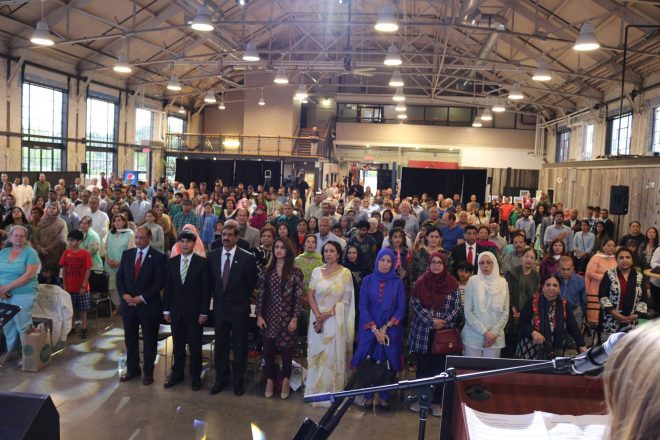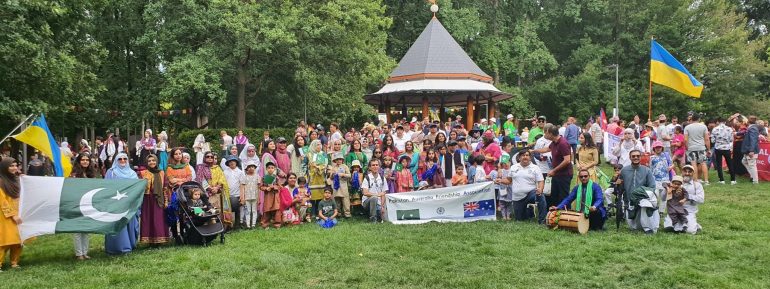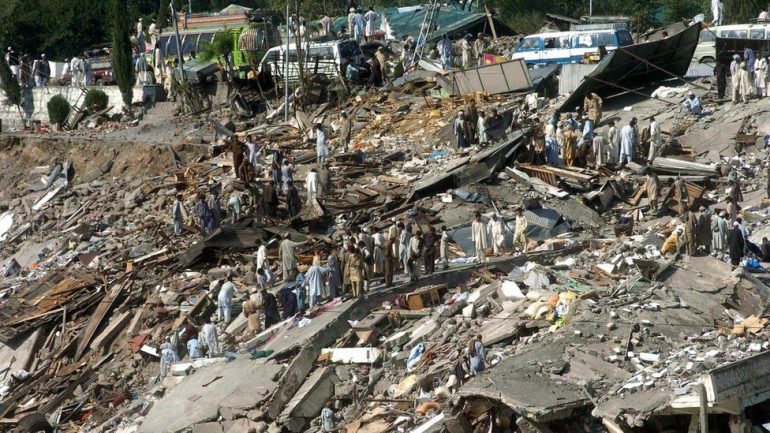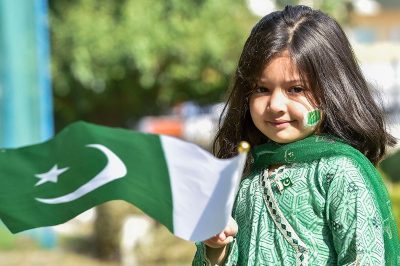The diverse and highly visible Pakistani diaspora, which can be found in every corner of the world, substantially impacts Pakistan’s foreign policy and the nation’s identity and profile. According to the UN Department of Economic and Social Affairs, of the approximately 272 million diaspora communities globally, Pakistan has the sixth-largest diaspora. This diaspora significantly impacts the nation’s image, economy, and diplomacy. This article will analyze the function of Pakistan’s expatriate population and explain why it is essential to the development and standing of the nation abroad.
Diaspora as Ambassadors
Serving as unofficial ambassadors for their homeland is one of the most significant ways the Pakistani diaspora contributes to foreign policy. These folks are beneficial in bridging the cultural divide between Pakistan and their new home nations. They encourage mutual respect and cooperation through imparting their culture, traditions, and values.
Furthermore, the Pakistani diaspora is essential in improving the country’s global profile. They demonstrate Pakistan’s brilliance and promise via their successes and contributions in science, technology, medicine, and the arts. Figures from the World Intellectual Property Organization (WIPO) show that Pakistan has consistently increased its patent applications, reflecting its growing innovation and technological prowess. They also dispel inaccurate or unflattering preconceptions since they serve as Pakistan’s ambassadors in their host nations. According to a survey by the Pew Research Center, 53% of Pakistanis living abroad believe that their presence in host countries positively impacts how people perceive Pakistan.

Contribution to the Economy
The Pakistani diaspora’s economic contribution to Pakistan is crucial to their influence on foreign policy. The economy of Pakistan depends on remittances from its citizens living abroad. According to the State Bank of Pakistan, remittances hit a record high of $29.4 billion in the fiscal year 2021–22. In addition to helping numerous families, these funds are crucial to maintaining economic stability in Pakistan.
The diaspora’s involvement in the economy goes beyond remittances. Many Pakistanis living abroad invest in Pakistani enterprises and real estate, creating jobs and driving economic growth. Their financial investments can assist in improving the country’s infrastructure, education, and healthcare services, influencing foreign policy indirectly by making Pakistan a more appealing location for foreign investment.
Political Advocacy
The political advocacy work done by the Pakistani diaspora in its host nations can have a considerable influence on Pakistan’s foreign policy. They can influence policy decisions by actively participating in the political process and raising awareness about important subjects in Pakistan. This can involve lobbying for measures favoring Pakistan’s interests and strengthening diplomatic connections with their host countries.
As an illustration, the Pakistani American community in the United States has established grassroots initiatives to interact with Congress on subjects including U.S.-Pakistan relations, Kashmir, and human rights. Their efforts have prompted congressional hearings, more communication, and a better comprehension of Pakistan’s perspective by American policymakers.
The sizable Pakistani diaspora in the United Kingdom has been actively engaged in political advocacy. They have not only been successful in electing individuals of Pakistani descent to the UK Parliament but have also lobbied for policies that enhance UK-Pakistan relations. Their advocacy work has contributed to a deeper understanding of Pakistan’s perspective on trade, security, and education.

The Pakistani Canadian community has been instrumental in raising awareness about human rights issues in Pakistan. They have organized protests, written letters, and engaged with Canadian lawmakers to encourage Canada’s involvement in promoting human rights and democracy in Pakistan. Their efforts have led to parliamentary discussions and motions addressing these concerns.
Pakistani Australians have actively advocated for educational opportunities for Pakistani students in Australia. They have lobbied for scholarships, more accessible visa procedures, and cultural exchange programs, which benefit Pakistani students and strengthen people-to-people ties and bilateral relations between the two countries.
In countries with a substantial Pakistani diaspora, like Saudi Arabia and the UAE, the diaspora plays an important role in fostering closer ties between Pakistan and these nations. Their advocacy efforts have often led to diplomatic initiatives, joint economic ventures, and cooperation in regional security.
Role of the Diaspora in Crisis Management
The Pakistani diaspora frequently contributes significantly to Pakistan’s foreign policy goals in times of crisis. They mobilize resources and generate worldwide support, whether lobbying for humanitarian aid during natural catastrophes or raising awareness about current political issues. Pakistan benefits greatly from the diaspora’s capacity to coordinate and shape media and public opinion in times of need. For example, during the terrible earthquake in Pakistan in 2005, the Pakistani diaspora around the world raised donations, organized relief operations, and advocated for international support.
The disaster of 8 October 2005 earthquake in Pakistan, which left enormous devastation and misery. With a magnitude of 7.6, it shook the northern parts of Pakistan, mainly Azad Kashmir and Khyber Pakhtunkhwa, and left more than 3.5 million people homeless and more than 86,000 dead and almost 80,000 injured. Communities were destroyed, and essential infrastructure was damaged. However, surprising force—the Pakistani diaspora—emerged amid the chaos and debris. The Pakistani diaspora’s response to such hardship was terrific.

These countryfolks came together, displaying unmatched resiliency and harmony, as they donated finances, planned relief efforts, and advocated for international support. Along with helping to satisfy the immediate needs of the affected communities, their coordinated actions gave the rest of the globe a glimpse of Pakistan’s strength and fortitude.
The diaspora’s generous donations were one of the most immediate and powerful ways it contributed. The generosity of Pakistanis living overseas was highly touching. The United Nations said that the diaspora made nearly $1 billion in relief contributions, making this one of history’s most successful humanitarian fundraising drives. These contributions were crucial in supplying the afflicted populations with essential help, such as food, shelter, and medical care.
Also Read: Aid Chief of UN on Gaza aid accessibility efforts
Furthermore, planning relief activities on the ground was made possible because of the Pakistani diaspora’s swift and effective mobilization. Many people from the diaspora skilled in medicine, engineering, and logistics traveled to Pakistan to help with the rescue and relief operations. Together with national and international organizations, they gave their all to save lives, treat patients, and distribute supplies to the devastated areas. Their commitment and active participation embodied the intense feeling of duty and compassion that characterizes the Pakistani community worldwide. Along with providing vital operational and financial help, the diaspora was instrumental in promoting the need for international assistance and raising awareness of the situation. They lobbied foreign governments, international organizations, and NGOs on behalf of Pakistan using their networks and influence. This campaigning was essential in securing significant aid packages from countries such as the United States, the United Kingdom, and different international organizations, supporting relief efforts on the ground.
Challenges of Pakistani Diaspora
While the Pakistani patriotic diaspora is essential in determining foreign policy, there are obstacles to realizing its full potential. Cultural identity is a core concern for the Pakistani diaspora. Many individuals find themselves at a crossroads in an attempt to adapt to their host culture. They face the dilemma of preserving their rich Pakistani heritage while assimilating into the cultural fabric of their adopted homeland. According to research, maintaining cultural identity is a common concern among diaspora communities, with mostly Pakistanis living abroad expressing concerns about the potential loss of their cultural identity.
Language barriers further exacerbate the challenges faced by the Pakistani diaspora. Effective communication is the cornerstone of integration, yet linguistic hurdles often hinder this process. Many members of the diaspora struggle to master the language of their host country, restricting their access to education and employment opportunities. For instance, a study by the journal of the American Sociological Association (ASA) notes that limited English proficiency is a significant challenge for immigrants in English-speaking countries like the United Kingdom and the United States.
Economically, the Pakistani diaspora faces an uphill battle. Despite contributing to host countries’ economies through remittances and skilled labor, they often confront limited job opportunities, lower wages, and higher living costs. The World Bank reports that Pakistan is among the top ten remittance-receiving countries globally, with remittances accounting for a significant share of its GDP. However, the economic disparity experienced by Pakistanis abroad is evident in the wage gap compared to the native population.

The Government of Pakistan should establish channels for involvement and communication to maximize the diaspora’s beneficial influence on foreign policy to recognize the contribution of the patriotic Pakistani diaspora. The government should actively seek advice from Pakistanis abroad, include them in policy talks, and make critical decision-making procedures more accessible. Additionally, initiatives should be undertaken to alleviate their worries, foster trust, and give them chances to support Pakistan’s progress. According to a survey, 82% of Pakistanis believe that overseas Pakistanis should be granted the right to vote.
The Pakistani diaspora is an invaluable resource for the country’s foreign policy. They defend Pakistan’s interests abroad and act as cultural and economic ambassadors. They impact politics, crisis management, and public awareness campaigns. The Government of Pakistan must aggressively interact with the Pakistani diaspora, offer them chances for engagement, and address their problems to maximize their potential. Pakistan must use this resource to advance its international status and defend its interests as the world becomes more interconnected and the diaspora’s influence on foreign policy continues to expand. The Pakistani diaspora is not merely a representation of Pakistan’s international influence but also a source of tenacity and grit that can help Pakistan create a more promising future.
International Relations Scholar interested in National Security strategies, with a good focus on Geo-Politics, Foreign Policy, and Public & Cultural Diplomacy.








